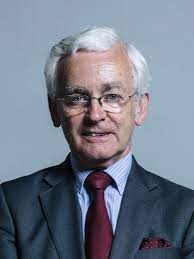The speech made by Martin Vickers, the Conservative MP for Brigg and Immingham, in the House of Commons on 19 July 2024.
I congratulate the hon. Member for Bishop Auckland (Sam Rushworth) on his maiden speech. We are all much more knowledgeable about his constituency now than we were a few minutes ago, so well done for that.
I acknowledge that the planning system is in need of reform. We cannot have a process that takes months—in many cases, years—for major projects, crucial to economic growth and associated jobs, to grind through an endless system. In my constituency, most such projects are located in an area that is, and has been for many years, mainly industrial. Although we should not trample on local opinion, we have to get those projects through the system more quickly than we do at the moment.
The Gracious Speech included this:
“My Government believes that greater devolution of decision making is at the heart of a modern dynamic economy and is a key driver of economic growth and my Ministers will introduce an English Devolution Bill. Legislation will be introduced to give new powers to metro mayors and combined authorities. This will support local growth plans that bring economic benefit to communities.”—[Official Report, 17 July 2024; Vol. 752, c. 39.]
Of course we need to increase the supply of housing, but how do Ministers square devolving decision making with strengthening central direction of the planning process and tying the hands of planning authorities? The Labour manifesto said that the Government would
“make full use of intervention powers”.
That does not sound like good news for local democracy.
Experience from my constituency shows that local communities will, in most cases, accept more housing developments, but they make the justifiable complaint that recent developments in all parts of my constituency, from Humberston, through New Waltham, Waltham, Scartho, Laceby, Wootton and Barton, to name just a few, mean that the already stretched highway infrastructure and public services, such as school places, GPs and the like, are now stretched beyond what is acceptable. What assurances can Ministers give that they will ensure new build will run in parallel to the provision of infrastructure and public services?
Another aspect of the planning process that angers people is that many appeals are determined by planning inspectors who frequently overrule council decisions that have been made after careful consideration of local circumstances. In some cases, such decisions have even overturned the local plan. That is not acceptable. Local plans go through various stages of consultation, including public hearings, all of which passes by the overwhelming majority of the public, until an application is lodged that could change the whole character of the neighbourhood. Clearly, the process needs to be reviewed, as I have previously argued, including in a ten-minute rule Bill I introduced some years ago.
If devolution and local decision making is to mean anything, planning issues should be determined at a local level, wherever possible. The shadow Secretary of State mentioned that there are current Ministers who lodged objections to planning applications for developments in their own areas. That went under the radar to some extent while they were in opposition, but now there is no hiding place for them. Every Labour Member who votes for proposed planning changes to some village or some part of the town will have to justify not supporting their constituents when they are up in arms about the application.
As someone who spent their childhood and early adulthood in a council house on a Grimsby estate, I have always supported the ability of local authorities to build council houses where that is appropriate. The ones that I lived in were built in the early 1950s when a Conservative Government were in power. They were of high quality and have stood the test of time. Sadly, that is not the case for much of the social housing that is imposed on new developments. I certainly would support the Government if they had a programme to encourage and support councils in house building, but I would be interested to know how they would finance it.
One proposal that is causing considerable concern, not just in my Brigg and Immingham constituency, but in many other constituencies along the east coast of Lincolnshire and through into East Anglia, is the National Grid upgrade on the Grimsby to Walpole route. These proposals could result in a network of 50-metre-high pylons running through some of the country’s most beautiful countryside, including impacting on the Lincolnshire Wolds area of outstanding natural beauty. I secured the final Adjournment debate on this matter before the election and the then Minister said that he was minded to order a review of the scheme. I urge the Government to honour that commitment and follow through with that review.
Finally, let me return to devolution and the policy to create more combined authorities. The proposals for the Greater Lincolnshire Authority have already passed through all stages of consultation, and a statutory instrument has been prepared, but, unfortunately, the election intervened. I say to the Deputy Prime Minister that this is an opportunity for an early win in her wish to create combined authorities. If she were to put forward that SI, I think most of the Lincolnshire MPs would give her some support.
